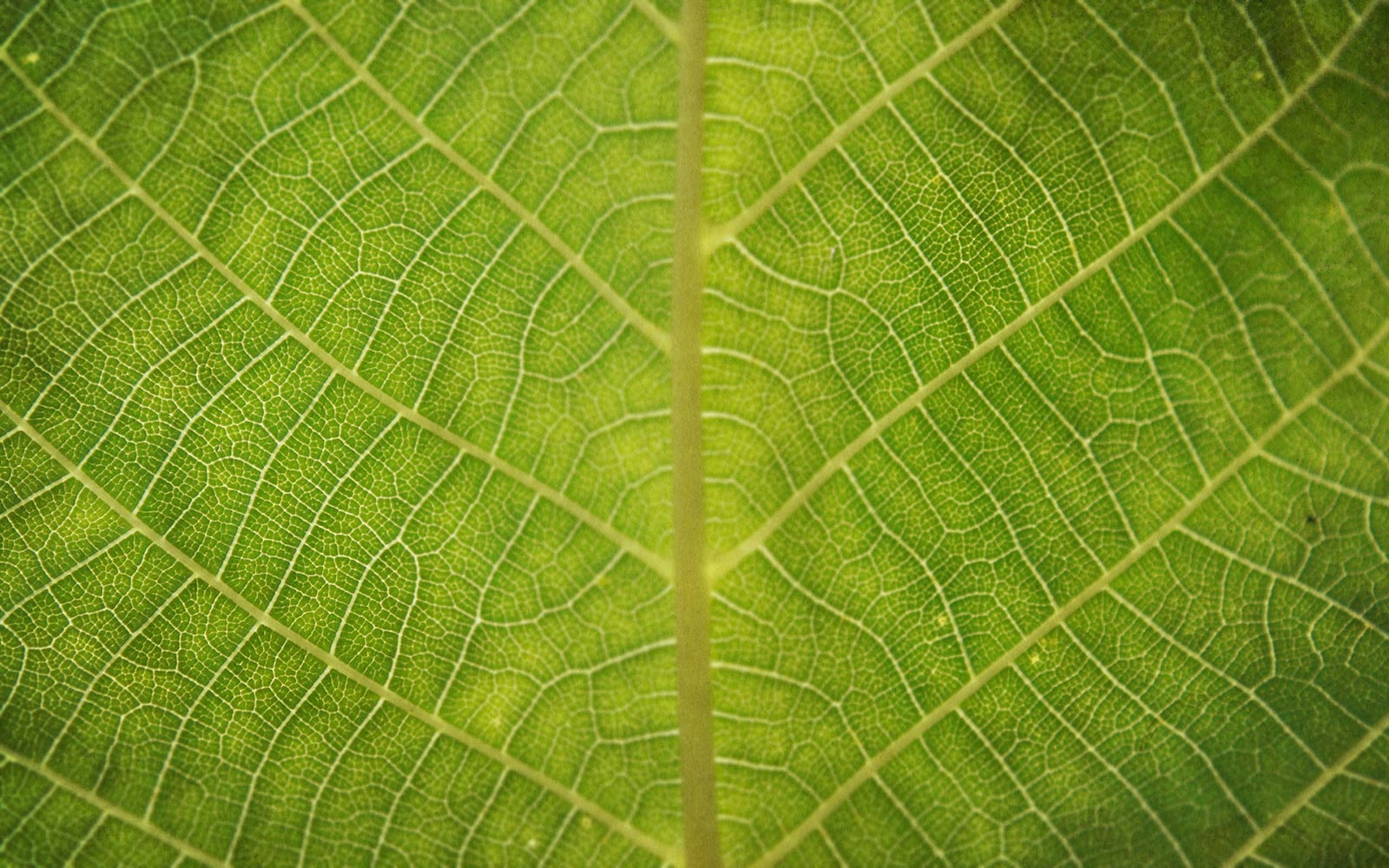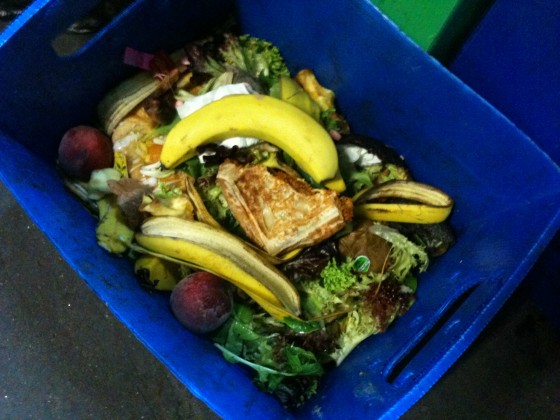Love Food Hate Waste is just one of the many campaigns running in Victoria to address the significant issue we face regarding food and its associated packaging waste.
According to the Sustainable Table, Australians waste over $8 billion worth of food and throw away enough packaging to fill the MCG 9 times over in one year! Food and packaging waste can easily be avoided and when we do have food leftovers there are benefits in recycling this waste instead of throwing it into landfill where it causes all sorts of problems.
We talk a lot about what can be recycled at Great Forest – it’s our specialty. For many years, we’ve been helping organisations divert as much waste as possible from landfill by implementing recycling programs.
We do this because there are so many issues associated with waste – the most obvious being that we have way too much of it! The problem is only getting worse as we have adapted to a ‘disposable’ lifestyle, where 95% of what we purchase is only used once before it is thrown away.
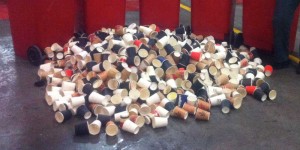
Disposal coffee cups are non-recyclable – this pile was collected in an audit for one building alone
Food and green waste (organic waste) is particularly harmful when it goes into landfill, even more so than other recyclables. When organic waste is buried, oxygen cannot get to it which causes it to break down anaerobically. This process releases methane, one of the worst greenhouse gases to be released into our atmosphere [1]. It also causes other issues whilst it breaks down in the landfill as it mixes with plastics, producing toxic substances that leaches into the surrounding soil and waterways…not the outcome we all want I’m sure.
We all need to take responsibility for the organic waste we produce. Diverting organic material and associated packaging from landfill will result in huge benefits for the environment. Here are some tips to help you to do this at home and at work.
Tips for home:
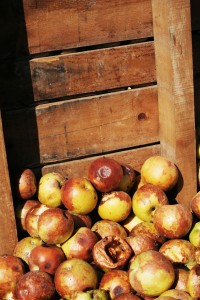
Rotten apples can easily be fed to chickens or composted
- Think about what you eat and plan your meals so you can avoid over buying and having to throw out food that has gone beyond its use by date
- Set up a composting system and recycle your unavoidable food waste such as tea bags, potato peelings etc
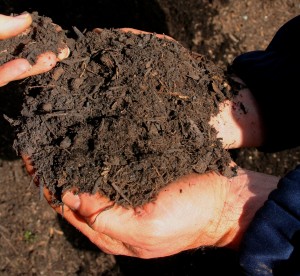
The finished product; healthy, clean compost
- Get some chooks – another great waste management system for food waste and in return you’ll get eggs and manure for the compost
- Sustainable Table has some great tips on how to reduce your food waste and what you can do with the waste you do create. Their tips get you to consider meat free days, to buy local, avoiding packaging and how to grow your own food.
Tips for work:
- Make use of your leftovers from home for your lunch at work and bring it in a reusable container
- Make use of organic waste recycling if it is in place. Getting up from your desk regularly keeps you active, burning calories, improving your blood circulation and helping your brain to function better
- Go out for lunch with a friend instead of buying take-away, this reduces the need for takeaway packaging and is better for you than sitting at your desk
- Don’t have organic recycling at work? Take your food waste home in a container and compost it or ask your organisation to introduce an organic recycling stream.
The benefits for the environment through making some adjustments to how we live include:
- A reduction in methane gas levels entering the atmosphere helping to reduce the impact of global warming
- Less waste going into landfill’s that are filling rapidly
- Reducing the need to create or expand landfills, which is costly and harmful to the environment
- Composting food waste will assist in creating healthy soil to grow food, retain water and improve our ecosystems. Compost is its’ own reward!
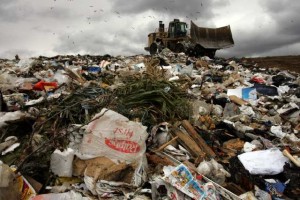
Landfill sites prove there is no ‘away’ when we dispose of waste
We have watched many organisations change their habits and introduce organic waste as another stream into their waste management programs but there are still plenty who have not made the move as yet.
It is inspiring when we have organisations approach us to introduce organic recycling because they want to do more to look after our environment as well as save some money. We have one client who loves their coffee so much that they have their own coffee machine in the office. At this stage, the building they tenant does not have an organic waste collection in place but they refuse to dispose of the coffee grinds into landfill. To manage this, each month a different staff member gets to take the accumulated grinds home to put into their own composting system because they know the benefits they gain from this is helping their garden to thrive.
Other recent inspiring stories are about organisations taking responsibility for how they package their products. Hepburn Mineral Water recently won a sustainability award for their re-usable keg in an effort to minimise packaging for their customers. Identifying more organisations like this when it comes to spending your money is another great way to reduce your waste impact when it comes to food and to really make positive changes to the way we live so we tread more lightly.
